#dwj
Text
Listen, I love Howl’s Moving Castle (the movie) and it is a stunning commentary on love and war and friendship BUT it can never top the sheer joy I get from the chaos of Howl’s Moving Castle (the book) with the Lettie Hatter confusion and the snippy arguments between Sophie and Howl and the moment when you realize that Howl is just frOM WALES, the country on EARTH ?? Who is avoiding his school work by being a wizard in another world ?? Iconic, relatable, no notes.
#howls moving castle#howl pendragon#howl jenkins pendragon#howell jenkins#sophie hatter#calcifer#diana wynne jones#dwj
974 notes
·
View notes
Text

Can't believe we're getting non-weird fantasy-core covers
#after a hundred million years#Howl's Moving Castle#hmc#Diana Wynne Jones#Castle in the Air#House of Many Ways#books#Fizzy talks#dwj#hmc's is my favorite
1K notes
·
View notes
Text
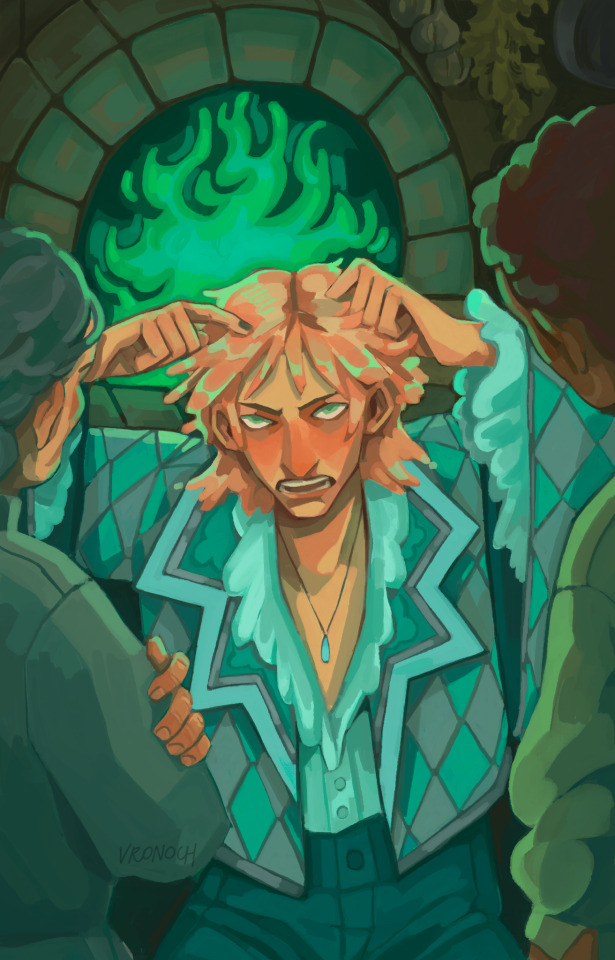
chapter six, in which howl expresses his feelings with green slime [1/3]
#howls moving castle#diana wynne jones#howl jenkins pendragon#howell jenkins#hmc#hmc book#dwj#sophie hatter#michael fisher#digital art#digital painting#illustration#book illustration#character art#digital drawing#procreate#fanart#my art
2K notes
·
View notes
Text
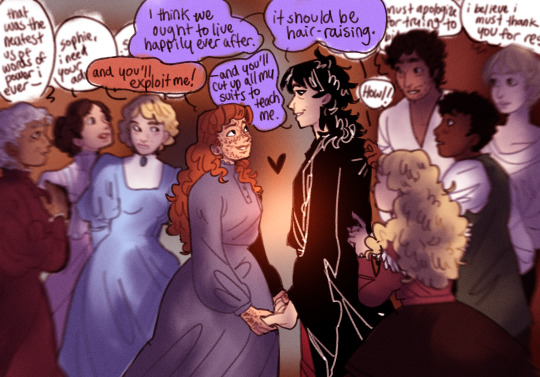
warmth 💫
#hmc book#howl’s moving castle#hmc#dwj#sophie hatter#hmc fanart#howell jenkins#howl pendragon#my art#digital art#drawing#sophie hatter :3#yippee!#i actually like this one#low key#crazy
737 notes
·
View notes
Text
Pls tell me your reasons in the tags!
#diana wynne jones#dwj#chrestomanci#the chronicles of chrestomanci#charmed life#the lives of christopher chant#the magicians of caprona#witch week#conrad’s fate#the pinhoe egg#living up to my brand here as the dwj mutual
169 notes
·
View notes
Text
I love Howls Moving Castle so much because DWJ wrote about being an under appreciated, minorly agoraphobic eldest daughter becoming more independent, and about how our loved ones often see the most secretive parts of ourselves even when we think it’s too monumental to ever reveal to them, all in a story about a body-part-jigsaw-puzzle
467 notes
·
View notes
Text
AU where Howl never finds his way to Ingary but Sophie is so desperate to escape after being cursed into an old woman that she accidentally talks a portal to his dorm room into existence
235 notes
·
View notes
Text
My Latest Attempt with Howl Pendragon
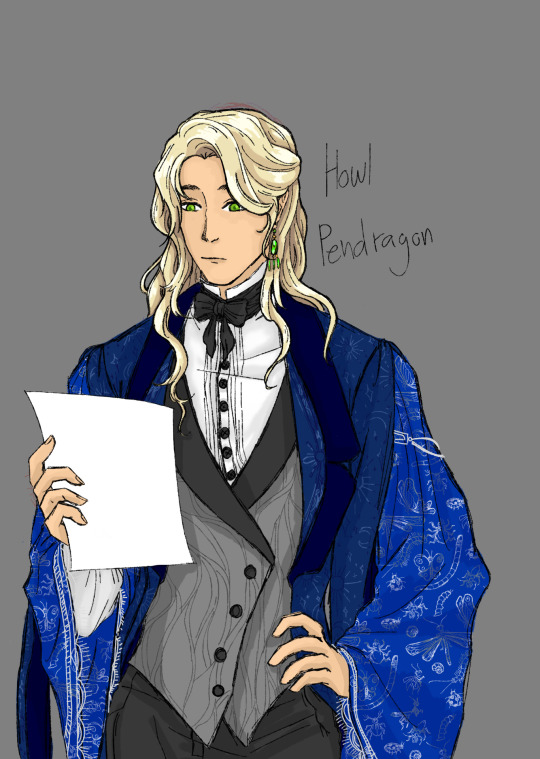
#hmc#hmc book#dwj#Howl Pendragon#howell jenkins#howl pendragon fanart#my art#fanart#Howl's moving caslte#howl's moving castle book#diana wynne jones#Dont me with the hands I do not have the energy rn#hmc book fanart#howl's moving castle book fanart#hmc fanart#howl's moving castle
520 notes
·
View notes
Text
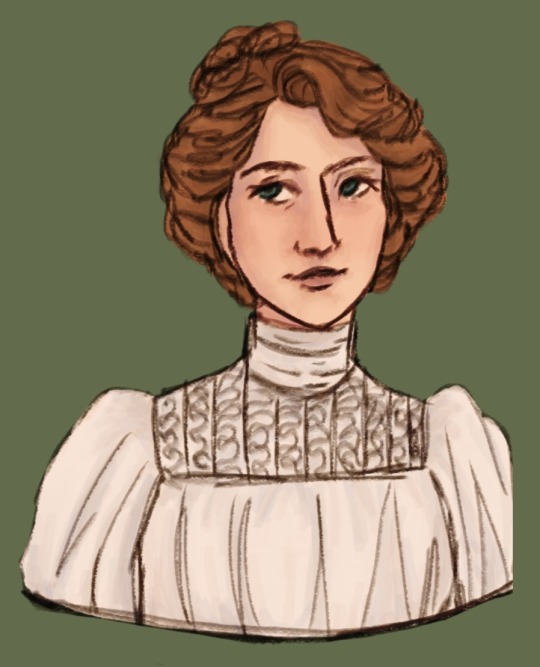
a wild sophie appeared!
added a freckles version lol
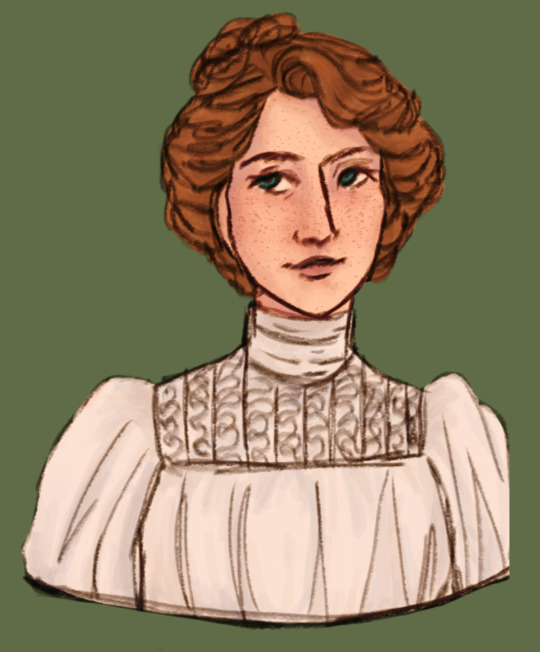
more sophie doodles under the cut

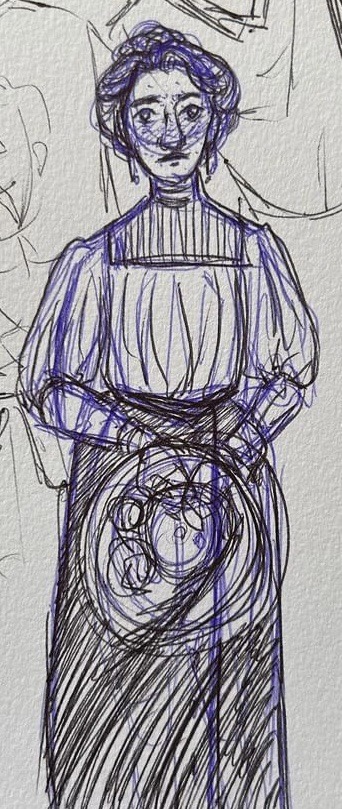
#hmc#sophie hatter#howls moving castle#howl’s moving castle#hmc book#my art#diana wynne jones#in which i post art for the first time in a long long while#dwj
160 notes
·
View notes
Text
Diana Wynne Jones is one of the best authors ever because she is one of the few that didn't ruin a couple dynamic after they got together. Howl and Sophie keep acting the same in the sequels. Very iconic of them. I love it! Do you know how rare that is??? Authors keep reinventing characters' personalities as soon as they start dating and it's annoying as hell.
#dwj#diana wynne jones#hmc#howl's moving castle#howl x sophie#aka why most of my ships have never dated#aka why I am glad fitz and the fool never got together (hobb would ruin it so fast)#aka I rather they never get together than authors ruining their personalities and dynamic
228 notes
·
View notes
Text
did you guys know about courtly love??? because I didn't
My introduction to courtly love was reading a Diana Wynne Jones novella that made no sense unless you know what courtly love is. After crawling confusedly through ancient Livejournal reviews to piece together what the story had been about, I took away that it was a weird medieval knight thing where you talk a lot of guff to a (married) woman without ever expecting it to turn into more than what it is.
The first chapter of CS Lewis's The Allegory of Love explains the concept much more thoroughly. His account is pleasantly bonkers. I now relay it to you. (Note: not only am I skeptical of parts of his account, I read it while sleep deprived, so salt liberally.)
First, a sketch of the relationship:
The lover is always abject. Obedience to his lady’s lightest wish, however whimsical, and silent acquiescence in her rebukes, however unjust, are the only virtues he dares to claim. There is a service of love closely modelled on the service which a feudal vassal owes to his lord. The lover is the lady’s ‘man’. He addresses her as midons, which etymologically represents not ‘my lady’ but ‘my lord’. The whole attitude has been rightly described as ‘a feudalisation of love’. This solemn amatory ritual is felt to be part and parcel of the courtly life.
This seems to have been both literary trope and a real-life interaction pattern (of which the former came first). A specific example in Arthuriana:
It is only later that [Lancelot] learns the cause of all this cruelty. The Queen has heard of his momentary hesitation in stepping on to the tumbril[, a humiliating cart he rode into the city where she was held captive, to rescue her], and this lukewarmness in the service of love has been held by her sufficient to annihilate all the merit of his subsequent labours and humiliations. Even when he is forgiven, his trials are not yet at an end. The tournament at the close of the poem gives Guinevere another opportunity of exercising her power. When he has already entered the lists, in disguise, and all, as usual, is going down before him, she sends him a message ordering him to do his poorest. Lancelot obediently lets himself be unhorsed by the next knight that comes against him, and then takes to his heels, feigning terror of every combatant that passes near him. The herald mocks him for a coward and the whole field takes up the laugh against him: the Queen looks on delighted. Next morning the same command is repeated, and he answers, ‘My thanks to her, if she will so’. This time, however, the restriction is withdrawn before the fighting actually begins.
So, huh. How did this cultural script come to be?
Courtly love as a literary trope began in 11th century Provence. Here's Lewis's sketch of that time and place:
We must picture a castle which is a little island of comparative leisure and luxury, and therefore at least of possible refinement, in a barbarous country-side. There are many men in it, and very few women—the lady, and her damsels. Around these throng the whole male meiny [i.e. attendants], the inferior nobles, the landless knights, the squires, and the pages—haughty creatures enough in relation to the peasantry beyond the walls, but feudally inferior to the lady as to her lord—her ‘men’ as feudal language had it. Whatever ‘courtesy’ is in the place flows from her: all female charm from her and her damsels. There is no question of marriage for most of the court. All these circumstances together come very near to being a ‘cause’; but they do not explain why very similar conditions elsewhere had to wait for Provençal example before they produced like results. Some part of the mystery remains inviolate.
So that's the material background – a lopsided gender balance. But more fascinating is the cultural background where the passion and devotion of romantic love – a passion/devotion Lewis claims simply did not exist as a mode for men to treat women in Europe before courtly love was invented – could not be channeled into marriage because such a stance is incompatible with the social role of a husband:
The same woman who was the lady and ‘the dearest dread’ of her vassals was often little better than a piece of property to her husband. He was master in his own house. So far from being a natural channel for the new kind of love, marriage was rather the drab background against which that love stood out in all the contrast of its new tenderness and delicacy. The situation is indeed a very simple one, and not peculiar to the Middle Ages. Any idealization of sexual love, in a society where marriage is purely utilitarian, must begin by being an idealization of adultery.
In fact, courtly love's rightful predecessor is not heterosexual love but the love of a vassal for his lord. (I am quite skeptical of this as a claim about reality, but less skeptical of it as a claim about literature.) Reiterating a sentence from the first quote in this post:
The whole attitude [of a knight in courtly love with his lady] has been rightly described as ‘a feudalisation of love’.
CS Lewis on that feudal relationship:
We shall never understand [the affection between vassal and lord], if we think of it in the light of our own moderated and impersonal loyalties. We must not think of officers drinking the king’s health: we must think rather of a small boy’s feeling for some hero in the sixth form. There is no harm in the analogy, for the good vassal is to the good citizen very much as a boy is to a man. ... He loves and reverences only what he can touch and see; but he loves it with an intensity which our tradition is loath to allow except to sexual love.
So it's that relationship that courtly love remixes into heterosexual romance. Courtly love ennobles the lover – there's a religious parallel here for sure. And it is necessarily adulterous because marriage is not a matter of personal passion, because distance is conducive to recreational idealization, because the lack of potential sexual consummation is pleasantly purity-coded in a Christian society, and because a wife, being a knight's inferior, cannot ennoble him. So, finally, Lewis says bluntly:
The love which is to be the source of all that is beautiful in life and manners must be the reward freely given by the lady, and only our superiors can reward. But a wife is not a superior.
Coming back briefly to Diana Wynne Jones's The True State of Affairs: I understand much better now the behavior of the protagonist's love interest. He's a bored would-be king in captivity who decides to make the other visible prisoner his midons. He expects her to understand the convention he's following. Why shouldn't he take her on as a concept like this? She, also bored and deprived, benefits from his gifts and minor heroics. He wants an ennobling influence. And besides, isn't idealizing a beautiful woman you never intend to make a move on fun?
180 notes
·
View notes
Text
Some of my favourite things about Howl "Mr movingcastle" Pendragon/Jenkins/whatever in no particular order
All his flanks are weak
Has a breakdown when his hair doesn't look as planned
Wanted to save a fallen star so badly that he gave it his heart
Carries around a guitar he cannot play for the °~☆aesthetic☆~°
Said he was sure a baby was his son because it was just as ugly as himself
That time in the end of cita when he spun around Sophie lives rent free in my mind
Decided to be a toddler with a lisp for weeks just cause
Is a very talented magician but does his very best to hide it
Bought a flower garden AND a flower shop for his crush
Literally made up that his crush had to visit the king so that he'd get her to visit his old teacher to get her approval to check out her curse
Proved his love by showing up to a fight without makeup or having shaved
Flirting with a girl to get her to tell him more about her sister
(She in turn flirts with him because she too wants more info on said sister)
#howl pendragon#howl jenkins#howls moving castle#i bet ive forfotten things#please tell me what ive left out so i can add to it#he's o stupid i love him#dwj#hmc#this is strictly book!verse#howl series#my posts#howell jenkins#blomsterspråk
331 notes
·
View notes
Text
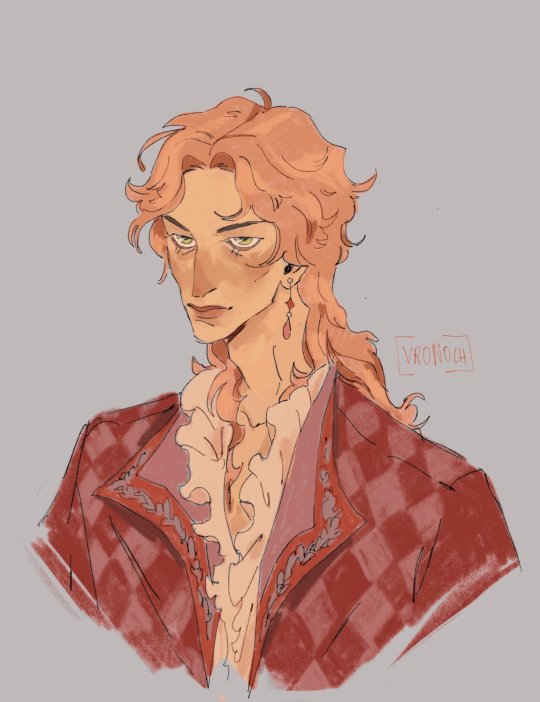
eyes like glass marbles
#was my previous post a foreshadowing? maybe#howell jenkins#calling him that is so funny#howl jenkins#howl pendragon#diana wynne jones#dwj#hmc book#howls moving castle#howls moving castle book#sketch#doodle#digital art#my art#yes mullet howl is canon yall are right#hmc
2K notes
·
View notes
Text
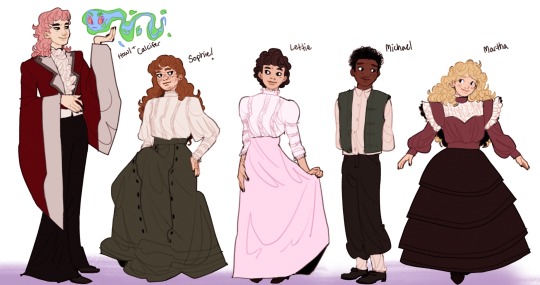
redid it again for portfolio
#hmc book#howl’s moving castle#hmc#dwj#sophie hatter#howell jenkins#hmc fanart#howl pendragon#my art#character lineup#portfolio
460 notes
·
View notes
Text
*So little known you had to buy a shitty/ancient edition just to own it. I’m considering Dogsbody, Fire and Hemlock, and Tale of Time City “well-known” by this rubric because they had recent reprint editions accessible in many US bookstores/Amazon, which is why I left them out!
#diana wynne jones#dwj#the homeward bounders#aunt maria#archer’s goon#hexwood#the time of the ghost#eight days of luke#tough guide to fantasyland#the ogre downstairs#the merlin conspiracy
137 notes
·
View notes
Text

Sirius the Dog-Star from Diana Wynne Jones’ book Dogsbody
#Sirius#dogsbody#diana wynne jones#dwj dogsbody#dwj#daffodil lamenting#my art#procreate#illustration
48 notes
·
View notes